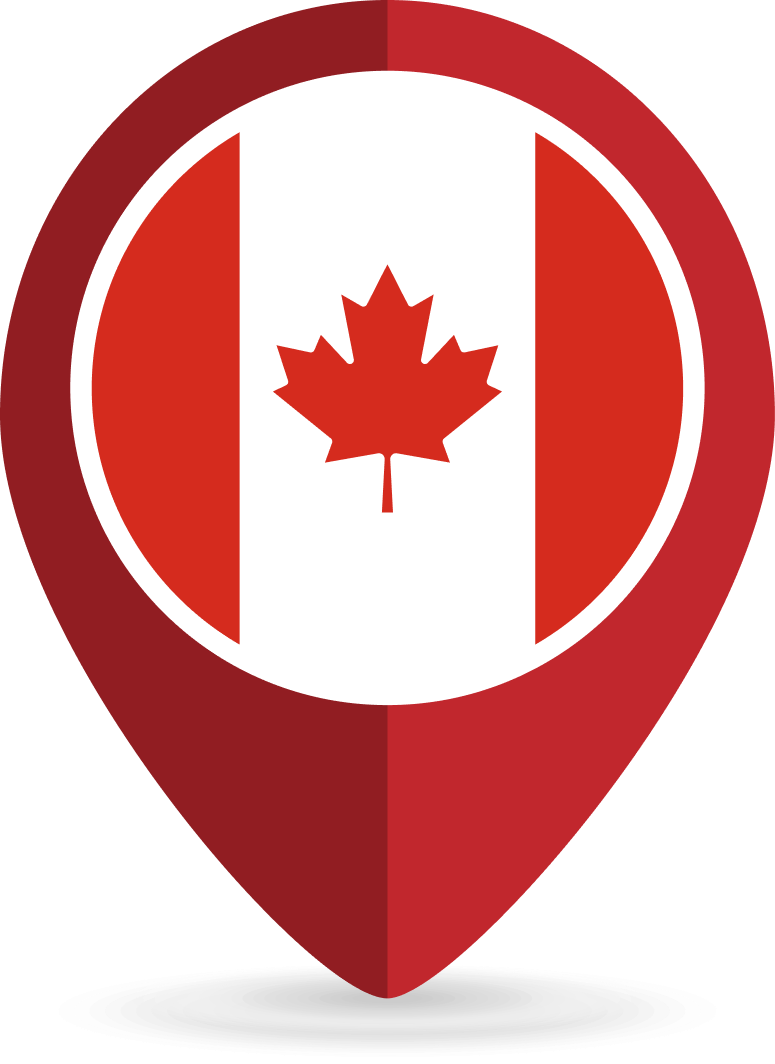Tips For Travelling To Canada During Winter Months
Annually, Canada sees its biggest influx of foreign nationals from July to September. These months are relatively warm and are considered the best time to visit the country. This is also the time when students from all over the world flock to Canada to begin their term at the many elite universities in the country. Canada is considered a top tourist destination even during winter months. The season usually sees freezing temperatures but still continues to offer many different activities specific to this season.
Temperatures in most of the regions in Canada fall below 0 °C during winters, with some experiencing temperatures as low as -40 °C. As for 2020, Farmer’s Almanac forecasts that Alberta and Northern Ontario will see some of the lowest temperatures. Quebec and Ontario will be dealing with a high level of snowfall, among other regions.
Such weather is difficult to endure, but with some pre-planning and preparations, you can have a wonderful trip.
Planning Ahead: What You Need To Know?
Winters are definitely harsh in Canada, with almost all regions experiencing sub-zero temperatures from November to March. It is highly likely that you may find difficulty in tackling such extreme weather, and may have to prepare in advance for the same. One thing to remember is that even if it’s freezing, temperatures and weather does differ from region to region. Winters are mostly clear and dry but there is a possibility that some places can be extremely windy.
By planning in advance, one can learn how to tackle such extreme changes in weather and make planning travel that much easier. While predicting weather can be futile, having a fair idea about local climate patterns can help you understand the kind of precautions you need to take and what you should pack.
It is advisable to buy winter clothes, preferably from local shops, that are specifically made for snowy and extremely cold climates. If it is expected to be windy, carrying sturdy hoodies and hefty coats that shield your ears and face are recommended. Make sure you have enough warm clothes so that you can wear layers beneath your winter coat. Invest in good quality, durable and water-proof high-shoes that can protect you while walking in snow-covered streets. Also, don’t forget the scarves, hats and gloves.
Before you reach your destination, research the commute and transport systems in place and see what suits your needs best. Most cities have good public transport facilities and are quite reasonably priced. You can also consider leasing a car if you are confident of driving in cold weathers, where snowfall is a regular occurrence.
That being said, cities are well equipped to handle these temperatures and have the necessary safety precautions in place. Hence, it becomes extremely easy for tourists to enjoy the various attraction that Canada has to offer.
Winter Attractions & Activities
Canada’s winters have a unique charm that can be beautiful, especially if you are someone who enjoys natural beauty and outdoor sports. While winter fixtures for Canada like Christmas Carnivals, Broadway shows and other events will not take place due to the pandemic, there are still numerous fun activities to look forward to.
Winterlude: Winterlude, scheduled for February every year in Ottawa, is a massive event where you can go for both indoor as well as outdoor activities. You can enjoy creative ice-sculptures, skate on Rideau Canal Skateway and even have fun in the massive snow playground. Many other activities will give you a glimpse of the country’s heritage and cultural diversity.
Skating & Pond Hockey: Ice Hockey is the country’s national sport with good reason. Most of Canada’s lakes freeze during the long months of winters and the localities take full advantage of this to have some sporty fun. Families and friends play smaller version of ice hockey on frozen ponds, making this a popular pass-time. As is seen, several lakes and ponds are also good spots for Ice-fishing. You can also find skiing trails all across the country. Many of these trails offer scenic views and are also used as hiking or walking trails in winter.
Dog Sledding & Sleigh Rides: One of the most popular sport in winter, dog sledding is available all over the country. However, make sure you have the dates right as the mushing season differs for every province according to the variations in the climate. Sleigh rides are also a common fun activity, especially since every region’s scenic beauty offers new experience.
Aurora Borealis: If you are planning a romantic evening, there’s nothing better that gazing out at the colorful display of natural lights. Canada has many spots that are perfect to enjoy Aurora Borealis or the Northern Lights. Yukon and Northwest Territories have some of the best places for this purpose.
Hot Springs: On cold wintery days, a soak in the hot spring can be a welcome change. Having had your fill of outdoor sports, the hot spring will help you relax your muscles and calm your mind. Alberta, Yukon and British Columbia have some of the best hot spring lakes in the country.
Cold Weather & Connectivity
As a foreign national in the country, the low temperatures might throw you off initially. Researching the places you want to visit and preparing yourself accordingly, will help you settle in easily and make your stay as comfortable as possible. Adjusting your itinerary while you tick the boxes on your ‘to do’ list is usually the focus of tourists. However, one thing that is essential to make your trip a successful one is connectivity.
Whatever the reason for your travel, work, leisure or study, staying connected is key to staying safe in a new country. From booking rides, navigating routes to searching for popular spots and keeping in touch with family and friends, having a good phone plan is necessary.
Sometimes sub-zero temperatures can freeze cable lines and interrupt connectivity, which highlights the importance of choosing a reliable service provider. Being snowed in without having an option to call for help or at least getting in touch with your family could be traumatic. In such situations having a phone plan that will ensure you constant connectivity is an absolute godsend. Make sure that you are choosing a company with long-standing experience and a proven track record in Canada. When you have decided on a provider, make sure you go over the available plans thoroughly and choose what meets your needs best.
Alternatively, you might want to buy a SIM card with a valid plan from your home country and carry it with you. This will allow you to stay connected right from the moment you land in Canada.
Canada is a country that welcomes tourists from all over the world with open arms. So, prepare yourself and be flexible with your expectations. After all, no matter how ready you think you are, you might still encounter some unexpected hurdles. You may have to re-schedule or re-route your planned trip to some place because the weather is bad. You may find some problem with the hotel or flight bookings. No matter what the problem is, your Canadian SIM card will come in handy to do whatever is needed.
Are you looking to enhance your post-landing experience in Canada? Write to us to get your Canadian SIM card today!
Related Posts



















